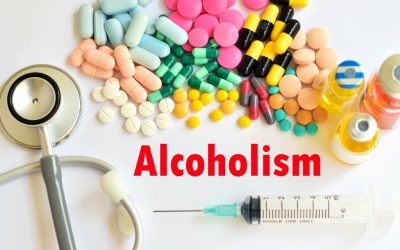Reaching for a glass of wine or a beer may feel like an instinctual way to wind down the week. However, for some, one drink can quickly become three or four. Plus, the physical and mental effects of binge drinking are just as dangerous as any other type of unhealthy drinking behavior even if you don’t consume alcohol on a daily basis. To avoid binge drinking, consider setting a maximum number of drinks for yourself and having someone hold you accountable. If you find yourself continuously passing your limit, you may want to explore tools like medication to stop drinking, or personalized alcohol therapy.

Plan for triggers and cravings
With the right mindset and support, you can achieve a fulfilling, alcohol-free life. Acknowledging the problem is the first step to quitting alcohol. Recognizing how drinking affects your health, relationships, and goals helps create motivation for change. Setting a clear intention by identifying why you want to stop strengthens commitment. Writing down personal reasons for quitting, such as improving health, regaining control, or enhancing mental clarity, provides a powerful reminder during moments of temptation.
- Celebrate small wins like one week alcohol-free or choosing not to drink at an event.
- Each step you take brings you closer to a healthier, more fulfilling life, free from the confines of alcohol dependency.
- Their personalized treatment plans, medical supervision, and therapy programs provide the guidance needed for long-term sobriety.
- Creating an alcohol-free environment is a significant step toward reducing consumption.
How alcohol consumption is slowly killing you

Instead of aiming for complete abstinence, for instance, aim to drink fewer than seven days a week. “Try sober Mondays or sober Mondays through Wednesdays,” he says. If you identify with any of the scenarios above, try tips to quit drinking the expert tips below for reducing your alcohol consumption (or even eliminating it altogether).
Download the free 20-page booklet, “Rethinking Drinking: Alcohol & Your Health”.
- You’re likely to be in situations where you’ll be offered a drink.
- Plus, the physical and mental effects of binge drinking are just as dangerous as any other type of unhealthy drinking behavior even if you don’t consume alcohol on a daily basis.
- For example, you can set a goal that cuts your number of drinks in half by the end of a three-month period.
- However, the temptation that keeping alcohol in the house creates is often a catalyst for relapse.
Turner notes the importance of bringing along a trusted support person when attending events that involve alcohol. It’s often easier to Sobriety turn down a drink when you don’t have to do it alone. Maybe you don’t think you depend on alcohol exactly, but you still wonder whether you might be drinking too much. From month-long sobriety challenges to the Sober Curious movement, more and more people are taking a closer look at the role alcohol plays in their lives. We aim to change how you feel about your drinking so that getting free becomes easy, enjoyable and you do not miss anything.
- You may have tried to stop drinking many times in the past and feel you have no control over it.
- All the same, “a quick drink” often turns into three or four drinks.
- Taking a month without alcohol can give you a look into what your life could be if your cut out alcohol completely.
- By recording each drink consumed, individuals gain insights into their drinking habits and how these patterns align with their goals.
- It’s easier to achieve a goal with the right tools, resources, and people to empower you along the way.
Avoid loneliness.

Remember, the goal is not to replace one addiction with another but to fill your life with more fulfilling activities. The symptoms you experience will often depend upon the severity of your addiction and how long you have been living with it. That said, considering these symptoms or asking family and friends if they have noticed them can help you become more aware of your current relationship with alcohol.